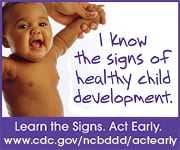Welcome To Thrive Coastal
Thrive Coastal is rooted in play based early intervention services and parent education to provide sustainable services that lead to improved whole-child development across the lifespan. We take pride in being a family-centered, child led, dynamic team of highly trained professionals collaborating to help each child reach their fullest potential.
All speech-language pathologists at Thrive Coastal have been trained by the Hanen Center.
The Hanen Centre is unique in that it doesn’t just involve parents in their child’s early speech therapy intervention – it provides a comprehensive approach that helps parents become their child’s most important speech and language teacher.
Hanen’s evidence-based approach to helping parents of children with delayed speech or language delays is rooted in the following three principles:
1. The pivotal role of parents and caregivers – Recognizing the family as the most important element in a child’s life means that parents can and should play a primary role in their child’s speech therapy intervention.
2. The importance of starting early – Children who receive speech therapy intervention early in their lives will have the best results.
3. The power of the “everyday” – Children learn to communicate not by being “taught”, but by participating in everyday conversations and activities with their parents and other important adults.
IT TAKES TWO TO TALK
Practical strategies you can use in everyday situations
The It Takes Two to Talk Program shows you how to use your natural, day-to-day life with your child to help him develop language skills. This program translates the research on early language intervention into concrete strategies that are easy for parents to understand and to put into practice. The program offers you many opportunities to practice and discuss each strategy you learn so that you’ll be comfortable and confident using them at home.
MORE THAN WORDS
The More Than Words Program was designed specifically for parents of children ages 5 and under on the autism spectrum and with other social communication difficulties. Addressing the unique needs of these children, the program provides parents with the tools, strategies and support they need to help their children reach their full communication potential.
A speech and language evaluation may be necessary if your child exhibits the following:
Doesn’t smile or interact with others (birth–3 months)
Doesn’t babble (4–7 months)
Makes few sounds (7–12 months)
Does not use gestures (e.g., waving, pointing) (7–12 months)
Doesn’t understand what others say (7 months–2 years)
Says only a few words (12–18 months)
Doesn’t put words together to make sentences (1½–2 years)
Says fewer than 50 words (2 years)
Has trouble playing and talking with other children (2–3 years)
Has problems with early reading and writing skills—for example, may not show an interest in books or drawing (2½–3 years)
November 2015
Early Detection of Speech, Language, and Hearing Disorders
Do you have a child 3 years old or younger? Are you worried because your child doesn't seem to listen? Has your child started to say any words? Does your child cry a lot or [...]
Which Toys Work Best for Supporting Interactions with Your Child
At The Hanen Centre, we encourage parents to involve their children in meaningful, positive interactions throughout their day. Have you ever noticed, though, that some toys make it harder to get an interaction going with [...]
Helping Young Readers in a Digital World
You are likely reading this article on your computer or tablet. Maybe you’re even trying to read it on your phone! The reality nowadays is that we do a lot of our reading on screens. [...]
Why Early Intervention is Key for Children with Autism Spectrum Disorder
If you have a child with autism spectrum disorder (ASD), or if you work with this population of children, you’ve likely heard the term early intervention. It’s almost impossible to read anything about ASD without [...]
Pretend Play Skills…An Important Marker for Language Development in Toddlers
Have you ever wondered if a child is “just a late talker” or if there’s a larger problem? Research reveals that there are several risk factors that let us know that a child’s late talking [...]





